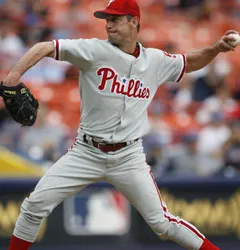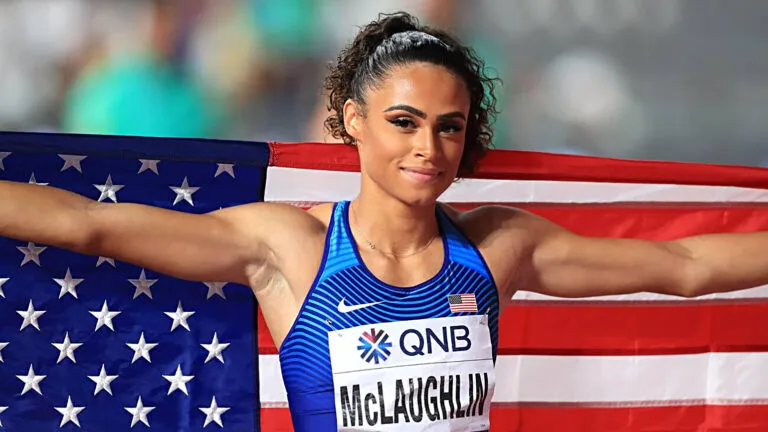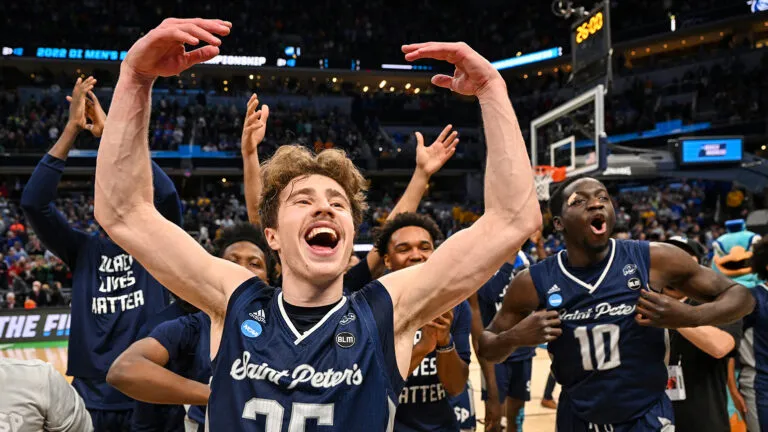Major league baseball is a sport populated primarily by men with large physiques and even larger egos.
Jamie Moyer has neither.
Through sheer moxie, determination and dedication, Moyer has made himself one of baseball’s top pitchers. He is small and thin-boned for a pitcher and lacks the power and strength that most of his younger contemporaries rely on to win in the big leagues. But Moyer compensates for his lesser physical gifts with guile, intelligence and industry.
“What makes him so successful” says Orioles pitcher Adam Eaton, who played with Moyer in Philadelphia during the 2007 and 2008 seasons, “is just what’s between those ears. He’s one of those people who learns the game and knows the game. He takes pride in being prepared…. His ability is what it is. [But] he gets the most out of it.”
Moyer is also nothing if not persistent. He refused to quit early in his career when he was struggling to keep out of the minor leagues.
“Sometimes I think it’s being in the right place at the right time,” he says, modestly, crediting his late-career success on the good fortune of playing for good-hitting teams, rather than acknowledging his own skills and hard work.
But other players marvel at his work ethic—Eaton recalls that he rarely got to the field before Moyer and never left after him—and his competitiveness and grit when he’s on the mound, getting by without the blazing fastball that most successful pitchers need to vanquish hitters.
Ron Gardenhire, the manager of the Minnesota Twins, whose teams played Seattle when Moyer was with the Mariners, says that Moyer “understands what hitters are trying to do probably better than anybody in the game. And he works against that. He…pitches to his strength and goes away from the hitter’s strength probably as good as anybody.”
What is truly remarkable about Moyer is that he did not become a star in the big leagues until he was in his mid-30s, an age when most players still in the game are contemplating or edging into retirement. And today, at 46, the left-handed hurler is the oldest player in the big leagues.
Last year Moyer—almost twice the age of some of his teammates—helped the Philadelphia Phillies win the World Series championship. He led the team in wins and has won more games in his 40’s (82) than he did in his 20’s (59). More than 75% of his 246 career wins came since he turned 33.
As for his status as baseball’s reigning Methuselah, Moyer says, “I really feel like I appreciate things a little bit more now. I’m trying to enjoy it. You never know when your last pitch is going to be.”
Virtually everyone in or out of baseball who has met Jamie Moyer admires him as a human being. Moyer is a mentor to teammates and one of the most giving players in the game when it comes to signing autographs, chatting and visiting with fans. He even goes out of his way to be accessible to sports writers, unlike many players who prefer to avoid contact with the media.
The Phillies’ longtime clubhouse attendant, Phil Sheridan, who has observed many ballplayers come and go, said last year, "Jamie is the most human, most caring, most down-to-earth guy I've seen."
Says Eaton: “To me, he was a big resource, not only as a teammate, but as a friend. That’s a great compliment. A lot of guys are great teammates, but what he brings to the clubhouse outside of baseball I thinks helps everybody out. There’s a reason everybody goes to him for advice.”
Yet the true character of Jamie Moyer is most visible off the field. He and his wife, Karen, have dedicated themselves to making lives better for others, particularly children who have suffered physical, emotional or financial pain. They have donated more than $1 million to the Moyer Foundation, which they founded a decade ago to assist children whose families are affected by drug abuse or kids who have lost a relative or close friend to death.
The Foundation established bereavement camps across the country to give children who have lost a loved one a chance to mingle with kids in similar situations and gain support for dealing with their loss. Another camp founded and run by the Foundation provides a similar environment to children from homes where drugs have torn at the family fabric.
“You realize as an athlete how fortunate you are,” the pitcher says. “You realize that you can make a difference.
“We sometimes lose a little perspective as athletes. You’re, ‘Wow, I’m this good.’ Or, ‘I make a lot of money.’ But when you walk out that door, you’re no different from anyone else. I’m really no different from anyone else at the ballpark. It just so happens that I have a job that I love, and that other people love and enjoy watching.”





